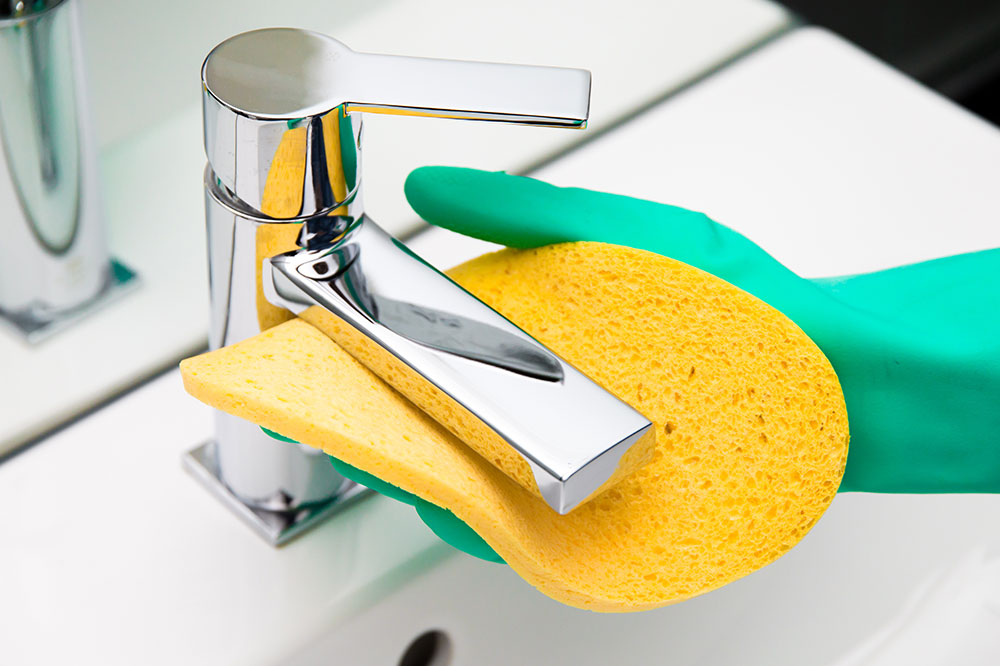7 Helpful Solutions to Deep Clean Homes Without Harsh Chemicals

Deep cleaning, a process of eliminating both visible dust and micro-sized dirt and bacterial particles, is a necessity for every home space once in a while. This form of cleaning ensures that every nook and corner of one’s home is spotlessly clean and well looked after. People generally associate deep cleaning with using strong, chemical-based solutions and cleansing agents. However, one can use some helpful DIY items to deep clean their house.
Using essential oils for air freshening
A major part of deep cleaning is deodorizing. A house that reeks is almost certainly not very clean. To deodorize, people generally tend to use room fresheners that contain a large number of chemical solutions for immediate results. While such room fresheners are effective, they are also not the most environmentally friendly option.
Instead, essential oils such as lavender, rose, hyssop, lemon, vetiver, cedarwood, grapefruit, and myrrh have as many deodorizing properties as any other room freshener. One can mix any of these essential oils with water and witch hazel to create a sprayable liquid. Here’s how to make a strong and environmentally-friendly mix- add a cup of water to a quarter cup of witch hazel, topped by about 5 to 7 drops of any essential oil. Next, one can add 5 to 7 drops of another essential oil for even better aromatic results. Generally, a mix of lemon and lavender is quite popular to achieve the best results.
Cleaning ceiling fans with old pillowcases
Of all the appliances in a home space, ceiling fans can be the ones that get easily dirty. It happens because they are almost always running and gathering dust and dirt on their blades. When one uses any cloth to clean it, the dust particles tend to fall and spread in the air around the room. It is not ideal as one cleans their property thoroughly. An unlikely cleaning device that suits this purpose is an old pillowcase.
Here’s how to use it- one can open the end of a pillowcase and place it at the end of the fan’s blade to be cleaned before pressing hard and pulling it off the fan. The dust collected in the blade gets removed and accumulates inside the pillowcase instead of falling or spreading across the room. Doing so regularly ensures that fans in a given house remain clean most of the time.
Rubbing lemon shower spray and rubbing alcohol for cleaning
Bleach is one of the most commonly used cleaners in deep cleaning sessions, but, like formula-based air fresheners, it also contains harsh chemicals. Bleach is also highly toxic and can pose serious health risks for cleaners, pets, or little kids in a particular house.
A reliable alternative is a combination of lemon and rubbing alcohol. This combination is a perfect, chemical-free solution made by mixing a teaspoon of dish soap, one and a half cups of water, a quarter cup of rubbing alcohol, and lemon juice from 2 whole lemons into a spray bottle using a funnel. Once the mix is created and filled into a spray can, one can use it to clean and disinfect surfaces effectively.
Not only is this mix as reliable and powerful as bleach, but it also ensures that no toxic elements are left behind after one is done with their deep cleaning session.
Using distilled white vinegar to clean glass surfaces
Glass surfaces are notoriously difficult to clean, especially when dirt residue and other sticky materials are making them filthy. A practical solution to address this issue is using distilled white vinegar. Distilled white vinegar has acidic elements that work effectively on alkaline substances. Therefore, it is the perfect solution to cleanse mold, dirt, and soap residue off glass surfaces. Also, this cleaning agent can clean residual matter like coffee stains, tea spots, and rust without any major effort. Unlike other powerful chemical-based cleaners, vinegar is not harsh in nature and can clean without leaving scars and rashes on the glass surface.
Using salt to clean pantries
The remarkable anti-bacterial properties of salt are well-known in the healthcare industry. Therefore, using salt in cleaners can achieve good results in one’s deep cleaning efforts without the issues of abrasive chemical-based cleaners.
Salt, mixed with other cleaning and deodorizing substances like lemons, can be used to clean baked-on grime on kitchen surfaces such as oven racks or stove grates. In fact, lemon wedges are the perfect option for salt-based solutions to clean most surfaces in one’s house.
Employing baking soda to clean upholstery
Baking soda is a seriously underrated cleaning agent that can be useful during a deep cleaning session around one’s house. Baking soda is particularly effective for cleaning carpets, sofa cushions, and other upholstery. So, before vacuum cleaning one’s carpet, one can sprinkle some baking soda on the surface. This non-toxic product eliminates dust from the carpet and keeps it odor-free and fresh. Therefore, if one intends to deep clean their upholstery, then baking soda is an ideal choice to consider.
Degrease and clean the oven using a homemade paste
To clean one’s oven efficiently, a specific homemade paste is good enough to get the job done and is entirely free of toxins and harsh chemical-based solutions. The mix consists of white vinegar, dish soap, baking soda, coarse salt, and a couple of lavender oil drops; in short, it is a mix of multiple DIY cleaning solutions that work together to cleanse, deodorize, and disinfect one’s oven.
A healthy home space ensures its occupants remain productive and happy all the time. Therefore, consider replacing chemical-based cleaning solutions with these DIY products to ensure your home remains healthy and clean always. Apart from these solutions, one can also use the Glad ForceFlex MaxStrength. This powerful cleaning tool effectively eliminates dust, dirt, bacteria, and food/bacterial odors in one’s house.